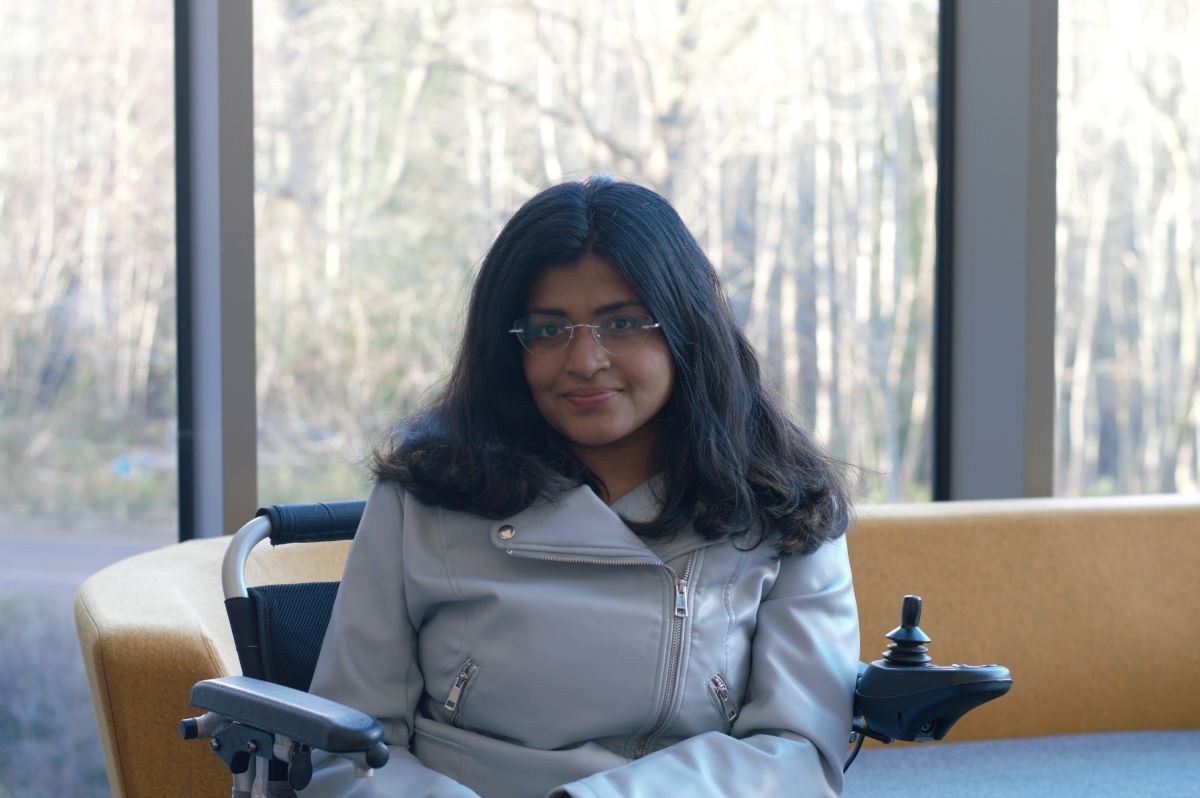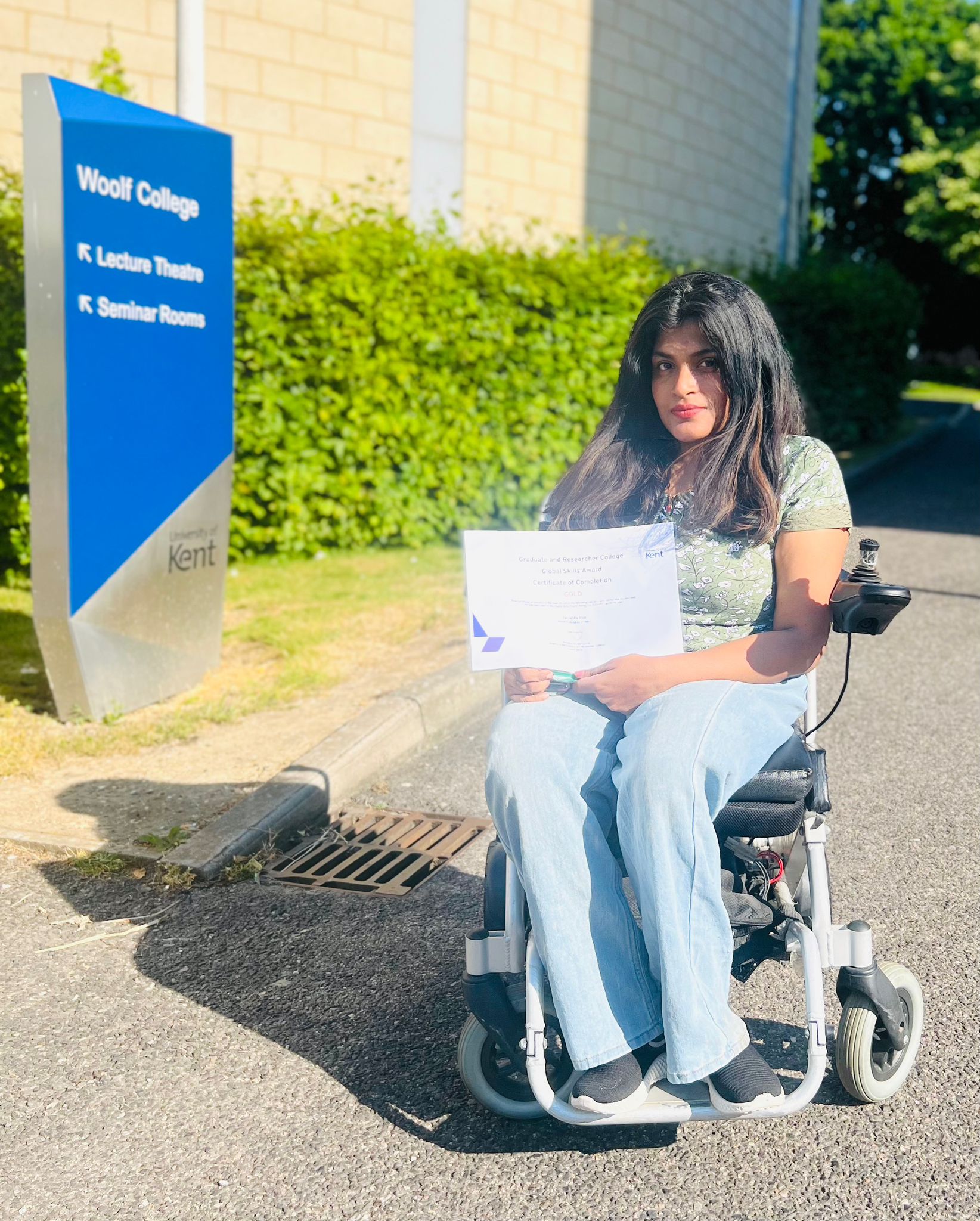Akshitha Rao, from India, is studying MSc Business Analytics. She uses a wheelchair and has restricted use of her hands.
When I was five years old, I contracted polio. The disease resulted in me losing the use of my legs. I also have restricted use of my hands.
All I remember is being upset that I couldn’t go out and play with friends. I’ve never identified as someone who’s less capable, because it’s hard for me to remember a life any different.
Being disabled is something which motivates me rather than contains me. People around me would try to stave off my ambition, but I didn’t listen.
That’s how I came to study at the University of Kent. After a career in banking back in India, I took a break being the primary care giver for my newborn. After a few years, I felt a longing to achieve more and decided to upskill with an Master’s degree. I chose the UK due to ease of accessibility.
It was the support for disabled students and the triple accreditation of the Kent Business School which stood out and made me apply for an MSc in Business Analytics. The university’s tagline “We stand for ambition” was something I could immediately relate to.
The Disability Team offered online and in-person one-to-one meetings, a detailed support plan and every detail was taken into consideration – from access in my apartment to time allowance during exams.
In India, inclusivity is in its infancy, and I had managed to have a really great career. If I could achieve this without support, imagine what I could do, with it!
I took the plunge and relocated to the UK. There was a lot of concern from family and friends, because it was my first year alone managing everything independently. I knew; however, I’d be fine.
There were a few wobbly moments, but the swift action of the university lifted me out of them. When the electric doors weren’t working in in my apartment block, for instance, they were fixed right away. I have also made great friends at Kent, who were there during the initial days, helping me move around the campus.
The course is academically challenging, but gosh have I learned a lot. I’ve always had a passion for data, but without a background in computer science, I had to put in more hours than others, but it has been worth it. The lecturers are experts, and their passion is infectious.
University life is what you make of it and I’ve made the most of the galore of opportunities available. I’ve bee part of I-Teams and also received a Global Skills Gold Award. I represent KBS as Student Ambassador for Business Analytics at recruitment events to share my passion with others.
Amid applications for a work placement. my family are moving over next month and I’m excited for this next phase. The UK is inclusive, and I see a long-term future here.
In one of my recent interviews, I was asked to give an example for a “thinking outside of the box”. I replied: “my day-to-day is thinking outside of the box”. Having a disability means you are constantly operating in a world not made for you. In the workplace, this translates to resilience, innovation, and creativity.
This Disability Pride month, I aim to give others a shimmer of hope that they can achieve things. I always live by the mantra: “I don’t need easy, I just need possible”
I also want to thank my family for the moral support and strength and love. My husband and my children and my mother who is 80 and helps with my household when I am away. Without them, I could never have achieved this!’


